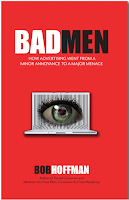Two weeks ago Procter & Gamble shook up the world of advertising by announcing that because of disastrous sales results they were discontinuing their "precision targeted" display advertising on Facebook and putting that money into mass targeted advertising.
This created big headlines because:
- P&G is not just the world's largest advertiser, but is widely recognized as the world's most sophisticated advertiser
- P&G has for years been shooting their mouths off about the remarkable effectiveness and efficiency of precision targeted online advertising, and has, in fact, moved more than 1/3 of their advertising dollars on line
- Precision targeting is the foundation on which online display advertising is soldHaving been traveling in recent days in Australia and New Zealand, I have been trying to follow the fallout of this announcement. I probably have missed some things, but it seems to me that there has been very little of a material nature that has come from this remarkable story. All I've seen are variations of the same story repeated over and over.
I'm waiting to hear what other major advertisers have to say, and, most of all, what the large agencies have to say.
While one company's experience is certainly not definitive evidence of anything, it seems that talk of other major marketers having second thoughts about their (ill-considered) headlong rush into the magic world of online display advertising are rife.
I am particularly anxious to hear what agencies have to say.
There is something about agency silence that is screaming at me. This year we've had a lot of very negative news about online display advertising:
Not a single one of these stories has been broken by anyone in the advertising industry. The stories have come from outside the agency world -- from the trade media, or clients, or researchers.
You've got to ask yourself why?
If agencies are supposed to be the experts on the effective use of media dollars, how can it be that they knew nothing about all these problems? Is it possible? Does it even pass the smell test?
The answer is no. The most likely scenario is that they've known what's going on and have been playing a double game.
I believe agency leaders have been hiding the ugly details from their clients behind an impenetrable smokescreen of "big data" horseshit. In other words, blinding them with pseudo-science.
Online advertising has two very compelling attributes for agencies: it is lucrative. and largely incomprehensible. Most clients, even the most sophisticated, think they know what's going on. But they don't. Ask P&G.
Agencies have sold their clients a truck load of baloney. It is slowly coming unraveled. Sadly for clients, the only place for them to take their business is to another agency that's been peddling the same baloney.
If I Were A Client...
...here's what I'd be asking my agency:
1. Is P&G right?
2. If not, how do you know?
3. If yes, why haven't you told us?
That should be good for a few laughs.
1. Is P&G right?
2. If not, how do you know?
3. If yes, why haven't you told us?
That should be good for a few laughs.




